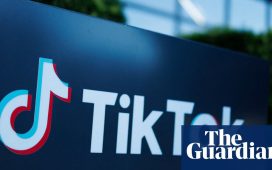With help from Cristiano Lima and John Hendel
Editor’s Note: This edition of Morning Tech is published weekdays at 10 a.m. POLITICO Pro Technology subscribers hold exclusive early access to the newsletter each morning at 6 a.m. Learn more about POLITICO Pro’s comprehensive policy intelligence coverage, policy tools and services, at politicopro.com.
— Debate night: Democratic presidential candidates have another chance to talk about tech tonight — amid a wave of new antitrust and privacy developments for the industry in Washington.
— “Dark patterns”: Sen. Josh Hawley unveils a bill aimed at fighting social media addiction, part of a growing congressional interest in the techniques tech companies use to keep people glued to their screens.
— Digital currencies, revisited: Facebook’s Libra is under new pressure as the Senate Banking Committee takes up regulation of cryptocurrencies and blockchain today.
GREETINGS, TECHLINGS: IT’S TUESDAY! WELCOME TO MORNING TECH. I’m your host, Alexandra Levine. Confession: Every time I read the name Larry Kudlow, I see the name Lisa Kudrow. (Anyone else?) I did always wonder whether growing up on Friends would have long-term repercussions.
Got a news tip? Write me at alevine@politico.com or @Ali_Lev. An event for our calendar? Send details to techcalendar@politicopro.com. Anything else? Full team info below. And don’t forget: add @MorningTech and @PoliticoPro on Twitter.
DEBATES, ROUND II — The second set of Democratic presidential primary debates kicks off tonight in Detroit, with Sen. Elizabeth Warren (leader of the “break up big tech” wing), Sen. Bernie Sanders (vocal on workforce issues) and Mayor Pete Buttigieg (the preferred choice of many Silicon Valley elite) the biggest players to watch on night one. The avalanche of tech industry developments since the first debates in June — including the FTC-Facebook settlement, approval of the T-Mobile-Sprint merger and the Justice Department’s antitrust probe into big tech companies — could very well come up on stage tonight. (The partisan split on the FTC-Facebook settlement, for one, was a stark reminder of the perils big tech companies would face under a Democratic win in 2020.)
— Pre-debate reading: POLITICO’s 2020 issues tracker maps out where the Democratic candidates stand on key tech policies — namely competition and antitrust, online privacy and content moderation on social media.
FOLLOW THE MONEY — Here’s an interesting trend to watch as we head into tonight’s debate: While Silicon Valley execs are donating in droves to Mayor Pete, who’s staked out a notably less threatening position on the tech industry, lower- and mid-level tech company employees are putting their money on the industry’s fiercest critic, Warren.
— “The interests of the people who run tech companies and their upper-middle class, well-educated employees are not necessarily aligned; in fact, I would argue they’re often at odds,” said Jeff Hauser, whose Revolving Door Project at the Center for Economic and Policy Research is tracking tech’s ties to the 2020 election. “If Warren and Sanders talk about breaking up big tech, they’re attacking the people who own the tech companies but that doesn’t mean they’re attacking people who work in technology; there’s every reason to think engineers would be paid better in a Warren administration than under a Buttigieg or Trump,” he told MT.
TOO MUCH SCREEN TIME? — Sen. Josh Hawley (R-Mo.) is taking another swipe at the tech industry this morning. His new bill, the Social Media Addiction Reduction Technology (SMART) Act, would ban social media companies from using tools like autoplay (on YouTube videos) or infinite scroll (on Facebook and Twitter feeds) to manipulate people into spending more time on a platform or influencing their behavior in other ways. The measure would empower the FTC and HHS to prohibit such practices, require that websites provide clear options to people on whether they want to share their data, and give users ways to monitor the amount of time they’re spending on social media. “Too much of the ‘innovation’ in this space is designed not to create better products, but to capture more attention by using psychological tricks that make it difficult to look away,” Hawley said in a statement.
— Dark pattern déjà vu — That’s not your imagination; Sens. Mark Warner (D-Va.) and Deb Fischer (R-Neb.) in April announced similar legislation to crack down on these so-called “dark patterns” — deceptive techniques that online platforms use to coax users into turning over personal data, often without fully understanding the terms. Hawley’s bill also picks up pieces of children’s privacy legislation unveiled recently by Sen. Ed Markey (D-Mass.) that would ban features designed to keep kids glued to screens. (Markey and Hawley are working together to update COPPA, the 1998 federal children’s privacy law).
SENATE INCHING FORWARD ON PRIVACY — Senate Commerce Chairman Roger Wicker (R-Miss.) told reporters he will meet today with his panel’s top Democrat, Maria Cantwell (Wash.), to continue negotiations on data privacy legislation. Wicker and Cantwell had been part of a larger Commerce working group on privacy, but shifted to one-on-one talks.
— Another bill inbound: Sens. Jerry Moran (R-Kansas) and Richard Blumenthal (D-Conn.), meanwhile, are moving ahead with plans to introduce their own privacy proposal by the end of the year, Moran told Cristiano. “We’re so close to what we think would work,” he said, adding that they’re “looking at perhaps others joining us.” Moran stressed that while Wicker and Cantwell will have a say in the “ultimate outcome” of Senate privacy talks, he and Blumenthal “absolutely” plan to offer up their own proposal before 2020. “We think it’s good and we think it’s bipartisan and it’s needed,” he said.
SPOTTED ON CAPITOL HILL: CISCO SYSTEMS CEO CHUCK ROBBINS — The telecom executive huddled Monday night in the office of GOP Whip John Thune (R-S.D.) and a bipartisan smattering of Senate Finance panel members. MT hears Robbins was invited to talk about how to best foster a U.S. competitor in the radio access network marketplace to challenge Chinese telecom giant Huawei amid the move to 5G wireless. Foreign operators like Nokia, Ericsson and industry leader Huawei dominate the market.
ON THE LIBRA LOOKOUT — The Senate Banking Committee holds a hearing this morning on regulatory frameworks for digital currencies, and though no Facebook reps will be testifying, the social network’s proposed digital currency, Libra, is expected to be at the center of witness testimony from The Blockchain Association and the Congressional Research Service. The Hill hearings (and international discussions) on Libra throughout July are only the beginning of a long fight between Facebook and the many lawmakers and regulators who have greeted the plans with skepticism at best and calls to cancel the project at worst.
Rene Augustine, senior counsel for the Justice Department’s antitrust division, will serve as acting deputy assistant attorney general responsible for international and policy matters, replacing Roger Alford, who will return to Notre Dame Law School as a tenured professor of law. … Benjamin Moskowitz, former director of development for innovation for the International Rescue Committee, joins Consumer Reports as director of its newly launched Digital Lab. … Patricia Jo Boyers, president of BOYCOM Vision, was elected chairman of the ACA Connects board, and Mike Bowker, chief operating officer of Cable ONE, was elected vice chairman. … Debra Lee, former chairman and CEO of BET Networks, is leaving Twitter’s board. … Plus: a massive round of layoffs at Uber and elimination of the chief operating officer post at Lyft.
Data security disaster: “Capital One revealed a massive data breach [Monday] that affected more than 100 million people, exposing credit-card applications, bank account information and Social Security numbers in possibly the biggest bank breach ever,” POLITICO reports.
Chummy with China: Huawei and Google were working together on a new Huawei-branded smart speaker before Trump restricted Huawei’s access to U.S. tech suppliers, The Information reports.
FTC, Facebook and Equifax: “The Federal Trade Commission accepted out-of-court settlements in their cases that won’t touch the corporations’ bottom lines. Why? They hired the right lawyers,” via The Daily Beast
Digital crime: A woman discovered that an Iraq-based American soldier she’d met on Facebook — to whom she wired thousands of dollars — was not real, The New York Times reports, “a global fraud that the social network and the U.S. military appear helpless to stop.”
ICYMI: “The gunman who murdered three people at a food festival in Northern California on Sunday posted about a far-right book on Instagram moments before the attack,” The Daily Beast reports.
Havana, ooh na-na: Cuba, “one of the least wired nations in the Western Hemisphere,” on Monday “put into effect a new set of regulations that seek to expand internet access on the island,” The New York Times reports.
Opinion: Rep. Alma Adams (D-N.C.), chair of the Historically Black Colleges and Universities Caucus, ITI President Jason Oxman and Howard University President Wayne Frederick write in The Hill about how diversity in the tech workforce can help address AI bias and other inequities.
Blog OTD: In preparation for this week’s 2020 festivities, TechNet President Linda Moore authored a post about tech, Detroit and the debates.
Tips, comments, suggestions? Send them along via email to our team: Eric Engleman (eengleman@politico.com, @ericengleman), Kyle Daly (kdaly@politico.com, @dalykyle), Nancy Scola (nscola@politico.com, @nancyscola), Margaret Harding McGill (mmcgill@politico.com, @margarethmcgill), Steven Overly (soverly@politico.com, @stevenoverly), John Hendel (jhendel@politico.com, @JohnHendel), Cristiano Lima (clima@politico.com, @viaCristiano) and Alexandra S. Levine (alevine@politico.com, @Ali_Lev).
TTYL.









